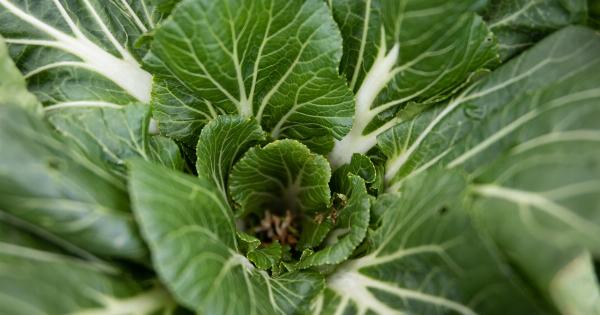Anxiety is a common mental health condition that affects millions of people worldwide. While therapy and medication are often recommended treatments, there are also natural methods that can help manage anxiety.
One such approach is through incorporating anxiety-reducing foods into your diet and practicing a few lifestyle tips. In this article, we will explore various foods and tips that can naturally alleviate anxiety symptoms.
1. Foods rich in Omega-3 Fatty Acids:
Omega-3 fatty acids are essential for brain health and can help reduce anxiety and depression symptoms.
Incorporating foods like fatty fish (salmon, mackerel, and sardines), chia seeds, and walnuts into your diet can provide a good dose of these beneficial fats.
2. Dark Chocolate:
Dark chocolate contains flavonols that have been found to reduce anxiety and improve mood. The antioxidants present in dark chocolate can also help in lowering stress hormones. Choose chocolate that has at least 70% cocoa content for maximum benefits.
3. Herbal Teas:
Drinking herbal teas like chamomile, lavender, and green tea can have calming effects on the body. These teas contain compounds that promote relaxation and reduce anxiety symptoms.
4. Magnesium-Rich Foods:
Magnesium is a mineral that plays a vital role in regulating brain function and mood. Foods such as spinach, almonds, avocados, and pumpkin seeds are excellent sources of magnesium and can help alleviate anxiety symptoms.
5. Probiotic Foods:
Gut health is closely linked to mental health, and consuming probiotic-rich foods can help improve both. Fermented foods like yogurt, kefir, sauerkraut, and kimchi contain beneficial bacteria that can positively impact anxiety levels.
6. Exercise Regularly:
Regular physical activity has been shown to have a positive impact on anxiety by reducing stress hormones and improving sleep quality. Engage in activities like walking, jogging, yoga, or any other form of exercise that you enjoy.
7. Practice Mindfulness and Meditation:
Mindfulness and meditation techniques have been proven effective in managing anxiety symptoms. Taking time each day to breathe deeply, focus on the present moment, and engage in relaxation exercises can help reduce anxiety levels.
8. Limit Caffeine Intake:
Caffeine can increase anxiety levels and disrupt sleep patterns. Limiting or avoiding caffeinated beverages such as coffee, tea, and energy drinks can help manage anxiety symptoms and promote better sleep.
9. Get Sufficient Sleep:
Sleep deprivation can worsen anxiety symptoms and make it difficult to cope with stress. Aim for a consistent sleep routine, limit screen time before bed, and create a calm environment conducive to quality sleep.
10. Seek Support:
Managing anxiety is a journey, and seeking support from friends, family, or a professional can make a significant difference.
Reach out to loved ones, consider joining support groups, or consult with a therapist to explore coping mechanisms and techniques.
Conclusion:
While anxiety can be a challenging condition to navigate, incorporating anxiety-reducing foods and practicing lifestyle tips can contribute to overall well-being and symptom management.
Remember, it’s essential to consult with a healthcare professional for personalized advice and guidance. By taking a holistic approach to anxiety management, you can empower yourself on the path to a calmer mind and a more balanced life.




























